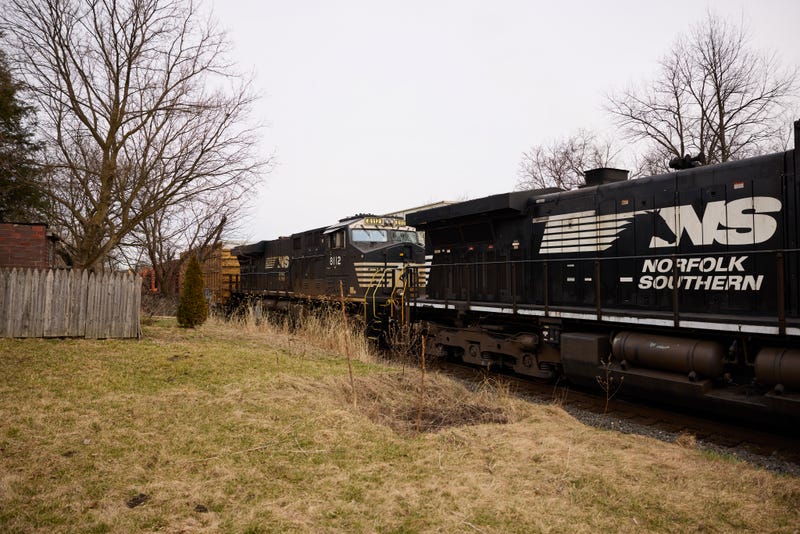
HARRISBURG, Pa. (KYW Newsradio) — The CEO of Norfolk Southern Corporation said he’s “deeply sorry” for the impact the Feb. 3 train derailment in East Palestine, Ohio, has had on residents along the Pennsylvania-Ohio. He promised that the company will support affected residents for “as long as it takes.”
Testifying before the Pennsylvania Senate Committee on Veteran Affairs and Emergency Preparedness, Alan Shaw fielded questions for more than hour.
He told the committee Norfolk Southern will continue to invest in the state.
“Norfolk Southern has plans to make this right. And we're going to be there as long as it takes,” he said.
Shaw said the company is committed to safety.
However, Chester County Sen. Katie Muth said a long Norfolk Southern train blocked roads in Royersford on Thursday for 23 minutes, and police and rescue crews weren’t notified despite concerns it could affect their ability to respond to an emergency.
She asked if Norfolk Southern would commit to running shorter trains.
“Senator, the NTSB did not indicate that train length had anything to do with the derailment in East Palestine,” he said.
The majority of testimony focused on the company’s decision to “vent and burn” harmful vinyl chloride gas from five of the 53 derailed cars. Shaw repeatedly said the decision was the right call.
“Based on the conditions on the ground, as we knew them, there was concern about an uncontrolled catastrophic explosion that would shoot harmful chemicals and shrapnel throughout the area,” he said.
Shaw says testing from the Environmental Protection Agency and Pennsylvania DEP shows no further danger.
But the committee also heard testimony from Purdue University ecological engineering professor Andrew Whelton, who says his team has been in the area and has tested for more chemicals than did the EPA.
“We found several chemicals in the creek water that officials weren't testing for but were definitely related to the fire. So we have urged these agencies to correct their testing approaches,” he said.
Shaw said the company is establishing a long-term testing plan and a long-term medical compensation fund, but he did not give a direct answer when asked if that would include cancer five or 10 years down the road.


